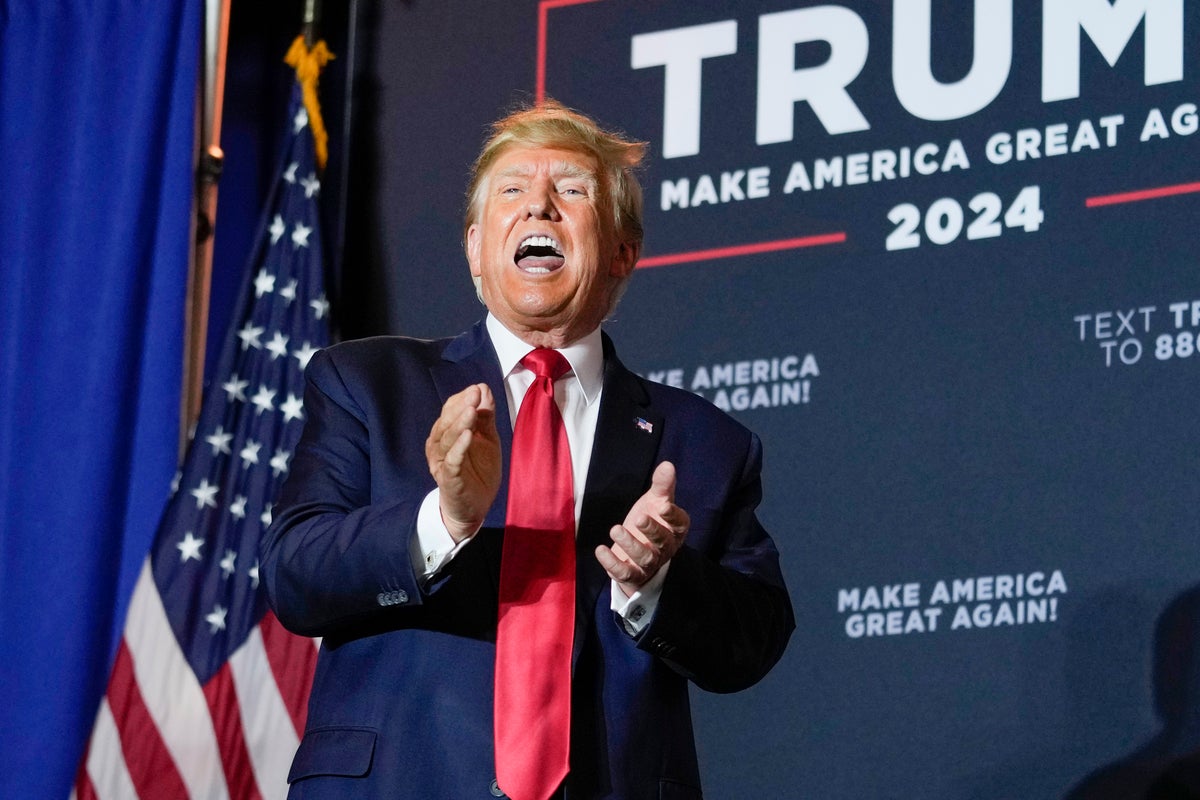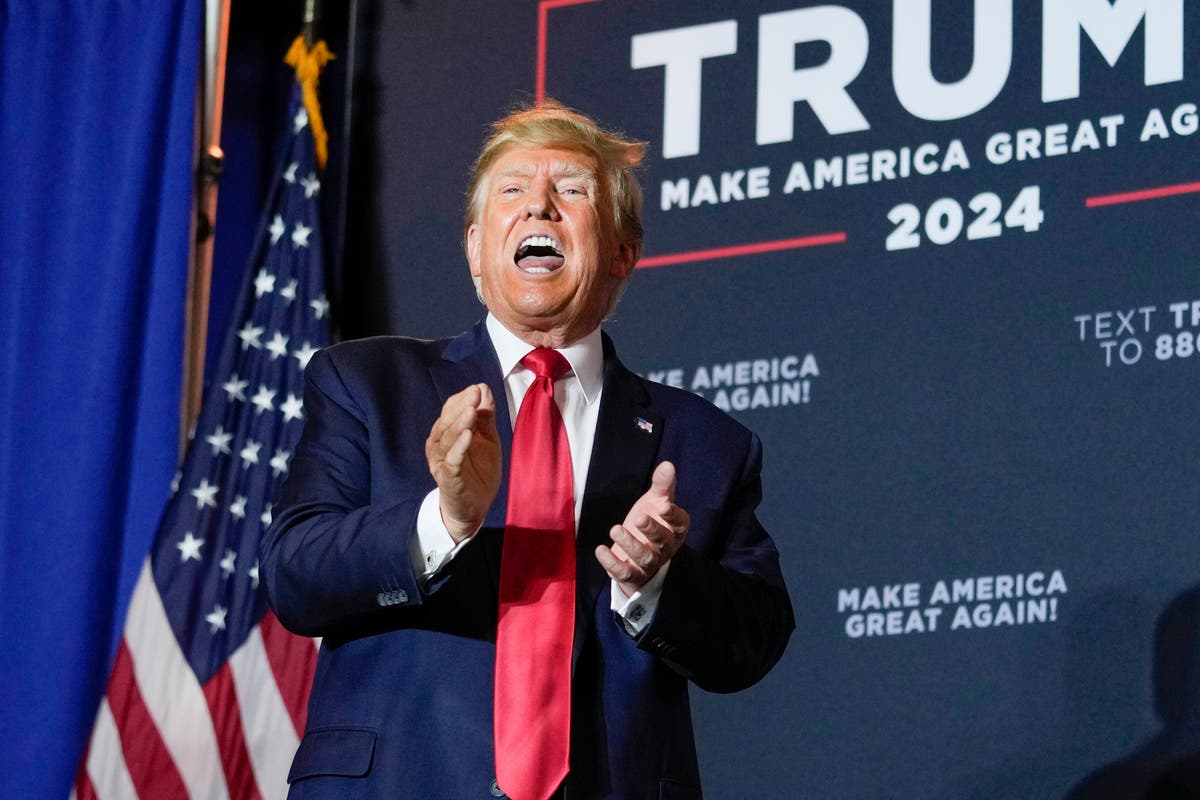
The leader of a major anti-abortion group aligned herself Monday with former President Donald Trump on the issue, just weeks after raising questions about his commitment to restricting access to the procedure.
Calling her meeting Monday with Trump “terrific,” Marjorie Dannenfelser, president of the Susan B. Anthony Pro-Life America group, said in a statement that he “reiterated that any federal legislation protecting these children would need to include the exceptions for life of the mother and in cases of rape and incest.”
The characterization of the meeting — which Dannenfelser’s group said happened at Trump’s Florida home — marked a turnaround from more than two weeks ago. Then, Dannenfelser called Trump’s contention that abortion restrictions should be left up to individual states, not the federal government, a “morally indefensible position for a self-proclaimed pro-life presidential candidate.”
Dannenfelser’s group has said it would not support any White House candidate who did not at a minimum support a 15-week federal abortion ban. Her statement about Monday’s meeting with the leading GOP contender didn’t mention any discussion of proposed confines for a federal ban, aside from Trump’s opposition to late-term procedures, which he has long opposed.
Trump has referred to himself as “the most pro-life president in American history,” as his three nominations of conservative judges to the Supreme Court paved the way for the reversal of Roe v Wade, which had legalized abortion nationwide for nearly 50 years.
But in the early months of his 2024 bid, Trump has often sidestepped the issue of abortion, even as Republicans across the country celebrate the Supreme Court decision stripping federal constitutional rights to the practice.
On Monday, Dannenfelser repeated a description she’s previously used, calling Trump’s term in office “the most consequential in American history for the pro-life cause.” Despite the credit Trump received for his judicial nominations, he was criticized after last year’s elections for saying that Republicans’ underperformance was due to abortion foes’ opposition to exceptions for women who became pregnant by rape or incest or whose life was at risk.
Trump’s campaign didn’t immediately respond to a message seeking comment on the meeting, which Dannenfelser also said included Sen. Lindsey Graham of South Carolina — one of Trump’s top congressional allies — along with Family Research Council President Tony Perkins, a Christian conservative ally of Trump’s.
All the candidates running in the Republican presidential primary or moving toward a bid have supported state bans on abortion. Most have been much more cautious about staking a position on a nationwide ban, though entrepreneur Vivek Ramaswamy’s campaign has said he believes it’s an issue for the states, not the federal government.
Sen. Tim Scott of South Carolina, who has launched a presidential exploratory committee and is expected to enter the race later this month, has said he would support a federal law to prohibit abortions after 20 weeks of pregnancy.
Florida Gov. Ron DeSantis last month signed a state abortion ban that, if upheld by the courts, would ban the procedure after six weeks of pregnancy, or before many women know they are pregnant. It will take effect only if the state Supreme Court, which is controlled by conservatives, upholds Florida’s current 15-week ban, which is part of an ongoing legal challenge.
The Florida ban would be one of the toughest in the U.S. But DeSantis has not made clear his position on whether such restrictions should be imposed across the country.
Nikki Haley, the former South Carolina governor and one-time United Nations ambassador, has called abortion a “personal issue” that should be left to the states, though she has left open the possibility of a federal ban. Last month, in a speech at SBA’s headquarters, Haley said she saw a federal role in the debate but stopped short of endorsing a national ban.
Former Arkansas Gov. Asa Hutchinson, who as governor signed a law banning abortion after six weeks of pregnancy, has said he would sign a federal ban but stopped short of saying what timelines he would support as president.
Trump’s stance has provided an opening on the right for potential rivals like former Vice President Mike Pence, an evangelical Christian with long-held anti-abortion views. Pence’s advocacy group, Advancing American Freedom, has pushed for Congress to pass legislation including a national abortion ban beginning around six weeks.
___
Meg Kinnard can be reached at http://twitter.com/MegKinnardAP
